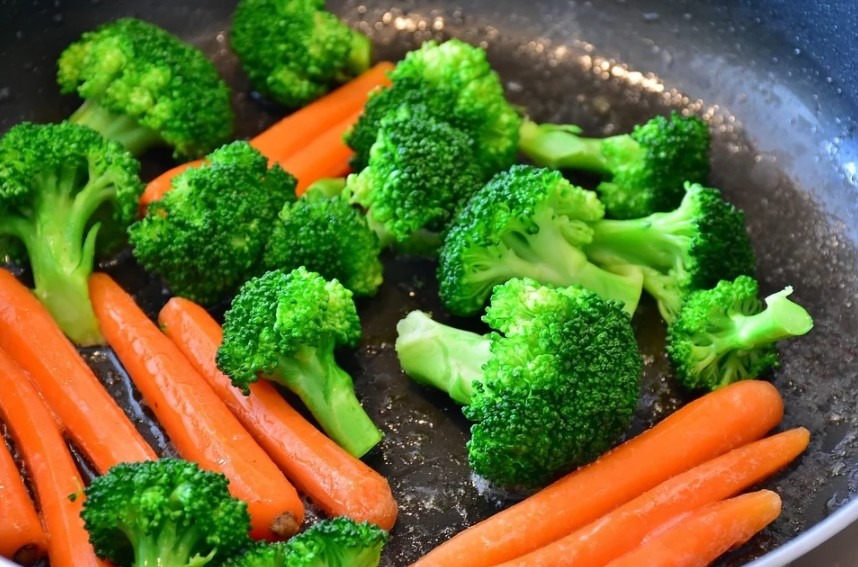A vegetarian diet consists mainly of plant-based foods that include not only fruits and vegetables but also nuts, seeds, legumes, grains, oils, etc. There are different levels of vegetarianism; many people primarily avoid the use of meats along with other animal products.
There are misconceptions regarding a vegetarian diet. Most people think that eating a plant-based diet is not enough to get all the essential nutrients, especially proteins. But reading this article till the end might change your mind.
Eating a plant-based diet has not only proved to be beneficial for normal people, but many gym freaks also get fast recovery and a lean body by not eating proteins and fats from animal sources. A high-fiber, vegan diet is key if you’re looking to get lean. However, it can be hard to imagine getting lean when you are on a vegan or major plant-based diet. Also, sometimes, consuming a plant-based diet might not be enough to sustain the amount of exercise you do.
It is skeptical but, new research says otherwise. In reality, it is not as difficult to put together meals that will help you gain a lot of muscle. It can also aid you with higher energy levels.
Plant-based nutrition is extremely compatible with exercise. A study has proved that you can attain maximum health benefits while solely relying on a plant-based diet. So, whether you are a pro athlete or a gym junkie who is thinking of switching to a vegetarian diet but are concerned about muscle mass, this article is for you. We have also added some food recommendations that will help you recover well and built lean muscles.
Research Summary
New research from the Adventist Health Study 2 shows that people following a strict vegetarian diet have low Body Mass Index (BMI) and higher healthy nutrient intake, as compared to people who follow other diet patterns.
This cross-sectional study was published in the Journal of the Academy of Nutrition and Dietetics. It was conducted to find out the differences in nutrition profiles between people following a vegetarian and non-vegetarian diet.
The objective was to compare the nutrient intake of different diet patterns, which were differentiated by the consumption of meat and dairy products. This was also correlated with the development of disease caused by nutritional differences.
The study included 71,751 subjects from a large cohort of Seventh-day Adventist Church having a mean age of about 59 years. Data was collected through a semi-quantitative food frequency questionnaire. The subjects were classified by the dietary patterns they followed, which were:
- Non-vegetarians.
- Semi-vegetarians (occasionally consume animal products).
- Pesco Vegetarians (consumes no meat other than fish).
- Lacto-Ovo vegetarians (no meat consumption but dairy and eggs are allowed).
- Vegans or strict vegetarians (no meats or other animal products).
The covariance in diet intake helped analyze the difference in nutrient intake. Each diet pattern was customized according to the subject’s age, sex, and race.
At the end of the research, BMI and other demographic data were recorded using analysis of variance.
The results proved that non-vegetarians had the lowest intake of plant proteins, fibers, vitamins, and minerals but, energy or calorie intake was similar for all diet patterns, except for semi-vegetarians. The highest mean BMI was of non-vegetarians, i.e., 28.7 and the lowest BMI was of vegans or strict vegetarians, i.e., 24.0.
What We Think
In the above-discussed research, it was proved that a vegan diet leads to a low body mass index and assists the body with many essential nutrients that can only be found in plants. Whereas, non-vegetarians have a diet intake that is high in saturated, trans, arachidonic, and docosahexaenoic fatty acids.
The large variation of nutrient profiles made it easier to evaluate the etiology of obesity or other chronic diseases. Only 9.4% of vegans are classified as obese, which is very low.
Some plant-based foods that help aid faster recovery and build lean muscles are:
- Potatoes.
- Legumes.
- Whole grains.
- Nuts and seeds.
- Vegan smoothies.
Final Verdict
A vegan or plant-based diet carries all the crucial nutrients required for a healthy diet. Both an average person and a fitness freak can follow a vegan diet, without any worries.
In this research, the nutrient intake varied greatly between the subjects. This difference was defined mainly by meat and dairy intake. The results showed that vegan people have a lower BMI and higher chances of getting a lean body.
Therefore, switching to a plant-based diet is one of the best ways to improve nutrient intake and body weight. Moreover, it also helps prevent many chronic diseases.

